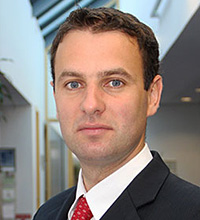Luck of the Irish: Being multi-generational has nothing to do with luck!
Over recent decades, Ireland’s economic landscape has evolved dramatically. Once known to economists as the ‘Sick Man of Europe,’ Ireland developed into a global business hub from the 1990s into the 2000s, which was credited to its low corporation tax and highly educated workforce. In 2008, Ireland was hit hard by the economic recession which offset a banking crisis and plunged many businesses and home-owners into debt. However, due to the resilience of the Irish nation, signs of national recovery are now apparent. Ireland remains a hotbed of multinational corporations, with approximately nine out of ten of the world’s largest software, pharmaceutical, and financial service firms calling Ireland home. Equally, Ireland’s family firms are also evolving in this changed context.
Significantly, the story of this small Western European country is not built on the presence of firms such as Google, Facebook or Mylan but on Flahavan’s, Barry’s and O’Hara’s—the family businesses of Ireland. Foreign direct investment, while sometimes controversial, has been largely successful for Ireland and the Irish economy. Yet just beneath the surface reveals a country dependent on its indigenous family businesses. Some Irish family firms have evolved into large, multi-faceted, professionalized groups, however, the majority of family firms continue to struggle with corporate governance and professionalization.
As in all developed nations, the family business is the economic and social bedrock of the Irish economy. The Irish Prime Minister, An Taoiseach Enda Kenny, bore testament to this fact. “For generations, the heartbeat of Ireland has been driven by family businesses.” Family businesses, a source of economic stability, foster local employment and wealth and enrich their communities through philanthropy, scholarships and investments. These firms are an omnipresent aspect of Irish society.
Despite this reality, recognition for Irish family businesses’ significant economic and social contributions was minimal with few notable exceptions e.g., CSO Family Business in Ireland- Services Sector 2005; Mandl, 2008. No collective voice or platform for family businesses existed in Ireland. While family businesses vary across sectors and sizes, these firms were, and still are, perceived as micro firms and SMEs in traditional industries (e.g., agriculture, services). By failing to distinguish family businesses from other organizational types, specific family business challenges were largely overlooked.
Although assistance by way of business development was catered for, very little support existed for managing the family in the business. As any family business aiming to be multi-generational knows, having your ‘house in order’ is imperative to continuity. Concurrent with this evolution in thinking and recognition of family firms’ prominence in Ireland, came the demand for greater understanding and awareness of their issues from both the practitioner and advisory communities.
Issues such as succession, family governance, wealth transferal, professionalization, family communication and family employment impact all family businesses, no matter the size or industry. Research indicates that only one in ten Irish family businesses has a succession plan that is robust and documented (PwC, 2014). Many family businesses expressing an interest in being multi-generational simply did not have the mechanisms in place to achieve this.
A need became apparent for increased know-how and education based on globally-recognised best practices to ensure the continued prosperity and survival of Irish family firms. An opening for specialized knowledge of family businesses in Ireland emerged and was duly filled by Dublin City University (DCU) Centre for Family Business (CFB). Launched by the Irish Prime Minister in 2013, the CFB was built upon three cornerstones—research, engagement and education.
Research
Recent studies recognize the many idiosyncrasies and nuances of family firms, which affect mind-sets, priorities, decision-making and general business management. Against this backdrop, the CFB’s research agenda was formed with specific focus on entrepreneurship and innovation in Irish family businesses, planning next generation involvement, succession, governance and family management. Research outputs vary from case studies to commissioned reports to academic publications. The most important aspect of this research is the real-life experiences and mind-sets garnered from many Irish business practitioners. Some of these have included a seventh generation oat-milling company (i.e., Flahavan’s), a family of Irish whiskey producers (i.e., Teelings), a tea blending and merchandising dynasty (i.e., Barry’s) and an internationalized portfolio group dealing in water and waste management, infrastructure and energy (i.e., NTR and the Roches).
Within the CFB, new research avenues have emerged including entrepreneurial learning, stewardship, imprinting and gender in succession. While the core research interests lie in strategic management and entrepreneurship of family firms, greater appreciation can be shown for the interdisciplinary nature of the research field. Understanding the nuances and features of family businesses involves investigation of family dynamics, behaviors and mind-sets and their effect on business performance and strategic decision-making.
Engagement
Engagement is the second facet of the CFB. Research is most effective when it is understood by the wider community (i.e., those outside of academia) and applied to real-life scenarios. A community of practice was established to translate leading national and international research into an extensive engagement programme. Family business practitioners nationwide receive best practice across social media platforms, e-zines, webinars, workshops and conferences.
“Pracademics” translate theoretical knowledge into practical take-aways. Some of those featured at CFB events include Dr. Timothy Habbershon, managing director of Fidelity Investments and advisor to the Johnson family; Dr. Justin Craig, professor of Family Enterprises and co-director of the Family Enterprises Centre in the Kellogg School of Management, Northwestern University, US; Professor Ken Moores, founding director in the Australian Centre for Family Business at Bond University, Australia; and Tom Lumpkin, professor of Entrepreneurship at Syracuse University, US.
Many of the issues family businesses face are of a sensitive nature and not conducive to public discussion. Thus, we have found a way of communicating these issues following a safe and effective format—role-play. At the events, professional actors role-play typical scenarios within family businesses e.g. family business conflict, appointing the next leader, wealth transferal. In that way, practitioners can witness, learn from and provide solutions for these hypothetical dilemmas in a safe environment. These scenarios enrich the learning experience of practitioners who apply best practices to their own firms. The events are there to encourage family businesses to have the difficult conversations regarding succession, professionalization, governance and family employment. By generating awareness of the pitfalls and best practices of family businesses, these firms are better-equipped to bridge generational gaps and persist.
Education
Education forms the third pillar of the CFB. We are developing our educational offering at undergraduate, postgraduate and executive education levels. Educational intervention is key to breaking the cycle of negative family business practices and behaviors across generations of family management or ownership. Dedicated modules such as Next Generation Management, Family Corporate Governance and Internationalization will be on offer to Irish family business practitioners. These families can then put their theoretical skills into practice by creating documents such as a family constitution, family employment guidelines, etc. This will give family businesses the in depth knowledge and skills to sustain and grow their businesses across generations.
During its short time in existence, the CFB has evolved and so too has the community of practitioners who are embedded in the organization. We engage with more than 1500 family businesses nationwide through events, e-zines and our social media platform. In 2015, 470 family business owners and managers attended our events and 18 family businesses are directly involved in our research endeavors. Through events and consultations with visiting academics and advisors, these family businesses are actively implementing succession plans and governance structures. One business in particular, namely Glennon Brothers, has been involved in case study research with the CFB. The research findings were disseminated to the family, which has since implemented a family council, constitution and regular meetings.
A feedback loop has emerged whereby family businesses are uncovering best practices and learnings from the CFB and in return the CFB uses families’ knowledge and experience to inform research. Among the multitude of families we have worked with, most are proactive and willing to modify their behavior, mind-sets and approaches to ensure the longevity and success of their firms. As a result, they are evolving to increase their chance of survival, enhance their ability to grow and assist with the national recovery. As more families adopt a pragmatic approach to succession, it becomes clear that successful multi-generational family firms do not rely on luck.
In order to adapt and survive, family businesses are seeking new ways to grow and develop. The most successful family firms see the value in innovation and strategic change whether it is through novel products and services, new divisions, businesses, partnerships or entry into new markets and industries. As John Teeling, prominent Irish entrepreneur and family business founder says: “Family businesses are going to get to the stage where they need to be re-invigorated.”
References
CSO, 2005. Family Business in Ireland-Services Sectors 2005. [Online]. Available from: https://www.cso.ie/en/media/csoie/releasespublications/documents/services/2005/fbi2005.pdf.
Mandl, I., 2008. Overview of Family Business Relevant Issues – Final Report. KMU Forschung Austria, Austrian Institute for SME Research, in co-operation with Turun Kauppakorkeakoulu Turku School of Economics, Vienna 2008, on the behalf of the European Commission, Enterprise and Industry Directorate-General (Contact No. 30-CE-0164021/00-51).
PwC, 2014. Irish Family Business Survey [Online]. Available from: https://www.pwc.ie/survey/2014-pwc-ireland-irish-family-business-survey.html.
About the contributor
 Dr. Eric Clinton is director of Dublin City University’s Centre for Family Business. His research interests are concerned with strategic entrepreneurial practices in multi-generational family firms. He can be reached at eric.clinton@dcu.ie
Dr. Eric Clinton is director of Dublin City University’s Centre for Family Business. His research interests are concerned with strategic entrepreneurial practices in multi-generational family firms. He can be reached at eric.clinton@dcu.ie




